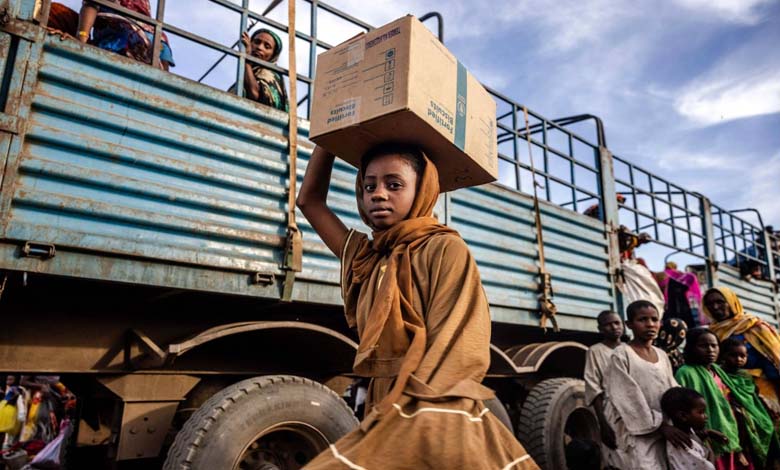Sudanese Analyst Reveals: Pressure Must Be Applied to Ensure the Flow of Humanitarian Aid

Humanitarian organizations working in Sudan have called, in a joint statement, for the international community to take urgent action to address the worsening hunger crisis in Sudan, which has reached unprecedented historical levels.
-
The African Union: The crisis in Sudan threatens the existence of the country and the entire region
-
After 500 Days of War… A Major Health and Food Crisis Facing Sudan
Humanitarian Crisis
Sudan is experiencing a historical hunger crisis. Despite this, silence prevails over the situation, with people dying of hunger every day. The Sudanese people are facing an unparalleled crisis that has not been seen for decades. As the peak of the drought season approaches, deaths and suffering are increasing across the country. Children are dying of starvation, according to a report by the news network “Roaya.”
The report reveals that more than 25 million people, which is over half of the population, have been suffering from severe food insecurity for several months. Many families have been forced to eat only one meal a day and have been reduced to consuming leaves or insects. The Sudanese people have demonstrated immense resilience and strength over the past 17 months, but they now have no other place to turn.
-
Pressure from “Kizan” on the Army Leadership to Abstain from Participating in Any Mediation to Resolve the Sudan Crisis
-
Struggle between America and Iran in Sudan Raises Fears of Complicating the Forgotten Crisis
Ongoing Suffering
In this context, Sudanese journalist Othman al-Mirghani states that it is crucial to exert pressure to ensure the flow of humanitarian aid and its delivery to those in dire need, or else they will pay with their lives. He points out that the famine could exceed this death toll, as the conflict has significantly impacted food production, destroying the agriculture and livestock sectors.
He adds that approximately 1.78 million people have been unable to access vital humanitarian aid due to logistical restrictions, arbitrary denial, and bureaucratic obstacles. Even in areas where aid does arrive, it is available in such limited quantities that individual rations are shared among groups of people.
-
The crisis worsens in Sudan… 8 Months of fighting between the Army and Rapid Support Forces, What’s next?
-
From Cairo to New York: Intensive Political Moves to Resolve the Sudanese Crisis
He warns that the level of suffering experienced by the Sudanese people in recent months cannot be expressed in words alone, and cautions that this resilience and endurance will be in vain if the situation continues to be ignored.












